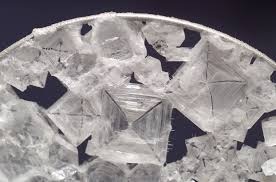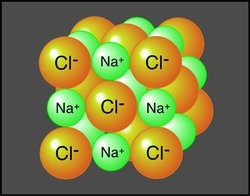EFEECT OF SALT (NaCl) ON HUMAN
Salts are very important for human to regulate their body functions. Salts are essential like for our blood pressure regulation system NaCl is required. There is huge list for salt use by human body. Table below shows the some name and their function in human body.
|
No. 1. |
Calcium Fluoratum |
Connective tissue, skin, joints |
||
|
No. 2. |
Calcium phosphate |
Bones and teeth |
||
|
No. 3. |
Iron phosphate |
Immune system |
||
|
No. 4. |
Potassium chloride |
Mucous membranes |
||
|
No. 5. |
Potassium phosphate |
Nervous system |
||
|
No. 6. |
Potassium sulphate |
Metabolism |
||
|
No. 7. |
Magnesium phosphate |
Muscles |
||
|
No. 8. |
Sodium chloride |
Water regulation |
||
|
No. 9. |
Sodium phosphate |
Metabolism |
||
|
No. 10. |
Sodium sulphate |
Purification |
||
|
No. 11. |
Silica |
Connective tissue, skin, hair |
||
|
No. 12. |
Calcium sulphate |
Joints, pus |
||
Table showing the list of salt required for body by homeopathic doctor Dr. Wilhelm Heinrich Schüßle.
Among them sodium chloride is the most common salt. It is abundantly available in Pakistan khwera salt mine.

Crystal of Sodium salt is as shown

NaCl have very strong bond that’s allow it to appear like crystal type structure. Three dimensinal view of NaCl is as hown below.

It is commonly known as table salt. And widely used in the world. It is necessary for the body and plays a vital role in different function of body. Some common functions are as follows
- Maintain the fluid level in body.
- Regulates the normal blood pressure.
- Provide relaxation to the muscle of body.
- Generates the proper nerves signals.
- Also protect from depression
With benefits there is several negative effect of NaCl upon extra dosing. This creates many health risks in USA. Sodium chloride used for the preservation of diet as it inhibits growth of bacteria and in USA most of diet is stored or packed food. Some negative effects are as follows
- Increase the blood pressure.
- Increase heart attack risk.
- Create kidney problems.
- Threat for diabetic patient.
Now the question is how much we should take salt in our diet. Nutritional science has answered this question. From age 14-50 its recommended daily amount is 2.3 grams.



